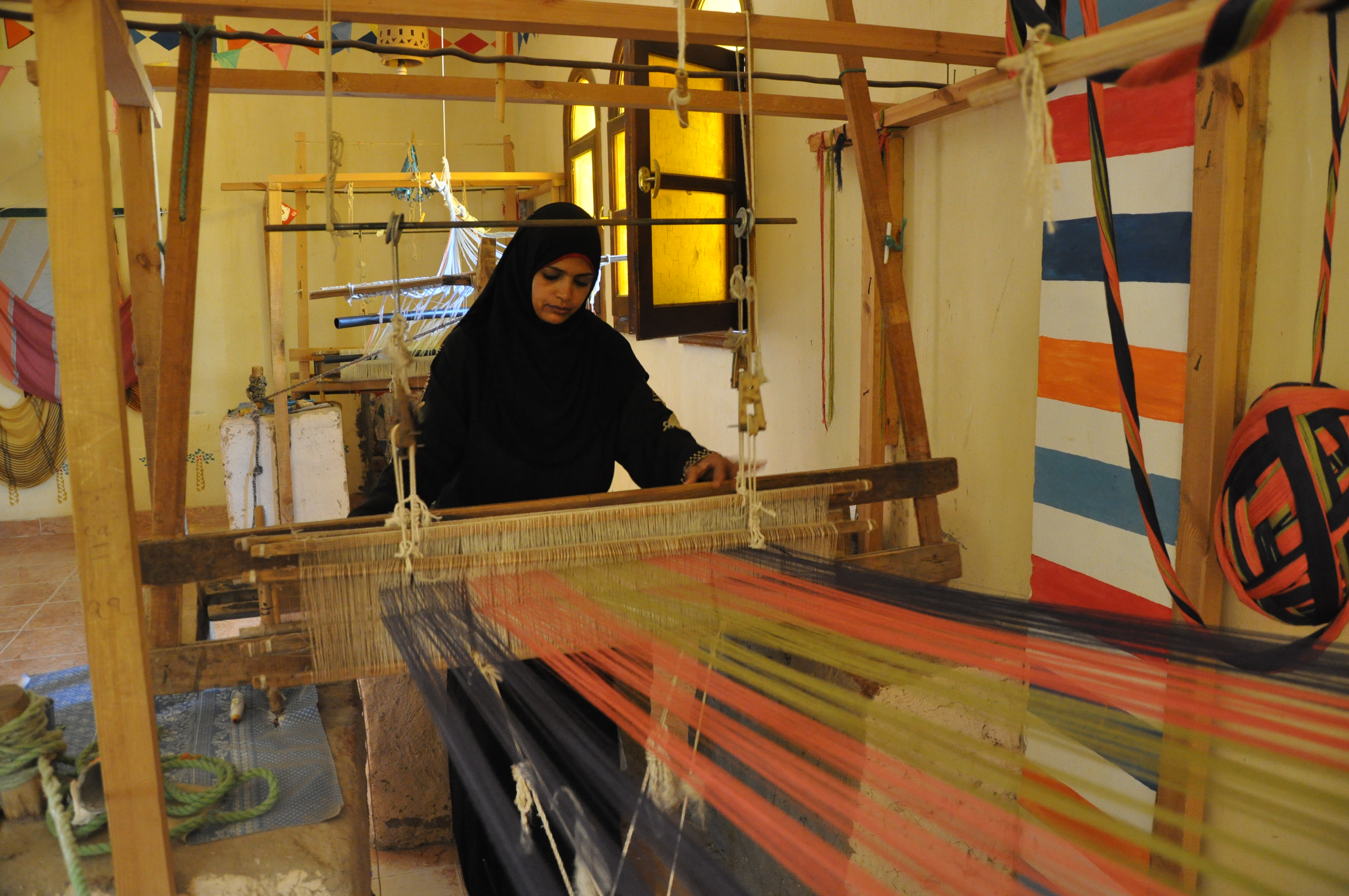
On a recent morning in Qena, a poverty-stricken region a few hundreds miles south of Cairo, Usama Ghazali sped through the dusty landscape in his village's communal truck. It was a busy day for the tall indefatigable 34-year old. After taking caring of his elderly mother, he met with a group of his workers—women weaving scarves in the thick summer heat. Then he was off to figure out an unreliable train schedule back to Cairo, where he was set to show the scarves to someone who had taken an interest in his business: Hillary Clinton, the American secretary of state. "I'm going to tell Hillary I have an idea," he says, smiling. "And I think it will change Egypt."
Nearly two years after a popular uprising, and with the country stuck dangling between its past and future, Ghazali is part of Egypt's growing number of entrepreneurs who want to propel the nation forward, despite a dire economy, high unemployment and only a vague political will for change. The odds are stacked against them.
In her visit to Egypt last summer, Clinton made time between meetings with the country's military junta and the Muslim Brotherhood to visit a group of entrepreneurs mentored by Flat6Labs, a Cairo-based firm that provides seed money and support to aspiring business owners. The two-year old startup has been receiving hundreds of applications for about six spots in the program, which open up every three months. They've launched 18 technology firms this past year and 10 have already found investors.
Ghazali and his two friends--Flat6Lab's first group from rural Egypt--are building the Egyptian version of Etsy, a popular website that showcases and sells the work of independent artists and craft workers. Their company Yadaweya, or "handmade" in Arabic, will sell the work of artisans across Egypt, and simultaneously tell the story of their lives. Their hope is to use e-commerce to preserve jobs for Egypt's craft workers, who still comprise a large proportion of the country's labor force, but now face an uncertain future in a globalized world.
"We're trying to help producers get direct access to markets," says Ghazali. "A whole swath of Egypt doesn't have any access, and opportunities are lessening due to their lack of technology and business skills. We need to empower these nontraditional markets and level the playing field."
In a way, Ghazali is really talking about himself. Most of Flat6Labs' budding entrepreneurs grew up outside of Cairo's rarified circles and made their way through the country's crumbling public school system. "These are the people who can't just pack up and move to the West," says Ahmed Al Alfi, the creator of Flat6Labs.
Lacking role models and business networks, many like Ghazali have become empowered by the revolution to forge their own path. But it hasn't been easy. "There are no courses on entrepreneurship at Egyptian universities," says Elmira Bayrasli, a Forbes columnist and author of the upcoming book Steve Jobs Lives in Pakistan: Extraordinary Entrepreneurs in the Developing World. "There are very few incubators and accelerators, few venture capitalists and investors to truly build out the ecosystem."
The U.S. is trying to lend a helping hand, but in subtle ways—sponsoring entrepreneurship programs and mentoring new business owners. More direct U.S. economic involvement is controversial. A Gallup poll released in September showed that Egyptians increasingly oppose American economic assistance and see the U.S. as interfering in their internal affairs. More than 80 percent of Egyptians oppose U.S. aid—nearly twice the percentage who reject Egypt's peace treaty with Israel. At a time when the State Department is trying to figure out the nature and extent of its aid to Egypt, some believe that promoting entrepreneurship could be a good way to help Egyptians help themselves. "All the chess pieces are there in Egypt," says Scott Gerber, an entrepreneur, who traveled to Egypt last year with the U.S. State Department to help lead a post-revolution business boot camp. "But they're still working without a board."
Gerber and others points to a dangerous deficit in political will for entrepreneurship, with tax and permits laws that make starting a small business difficult. In the World Bank's annual 2012 rankings for ease of doing business, Egypt ranked 110 out of 183 economies. "There needs to be a political will that matches the populist will," says Gerber. "Or else the latter will face increasing challenges."




